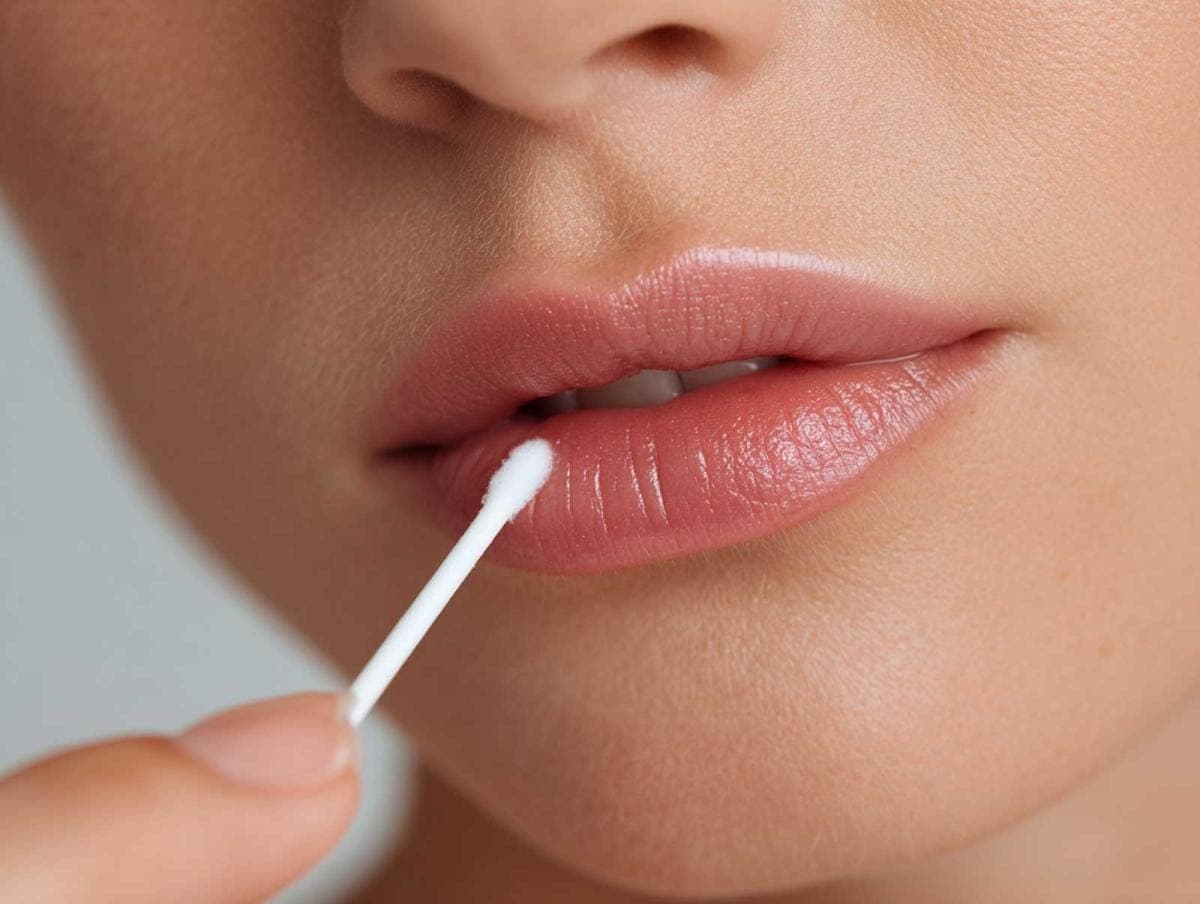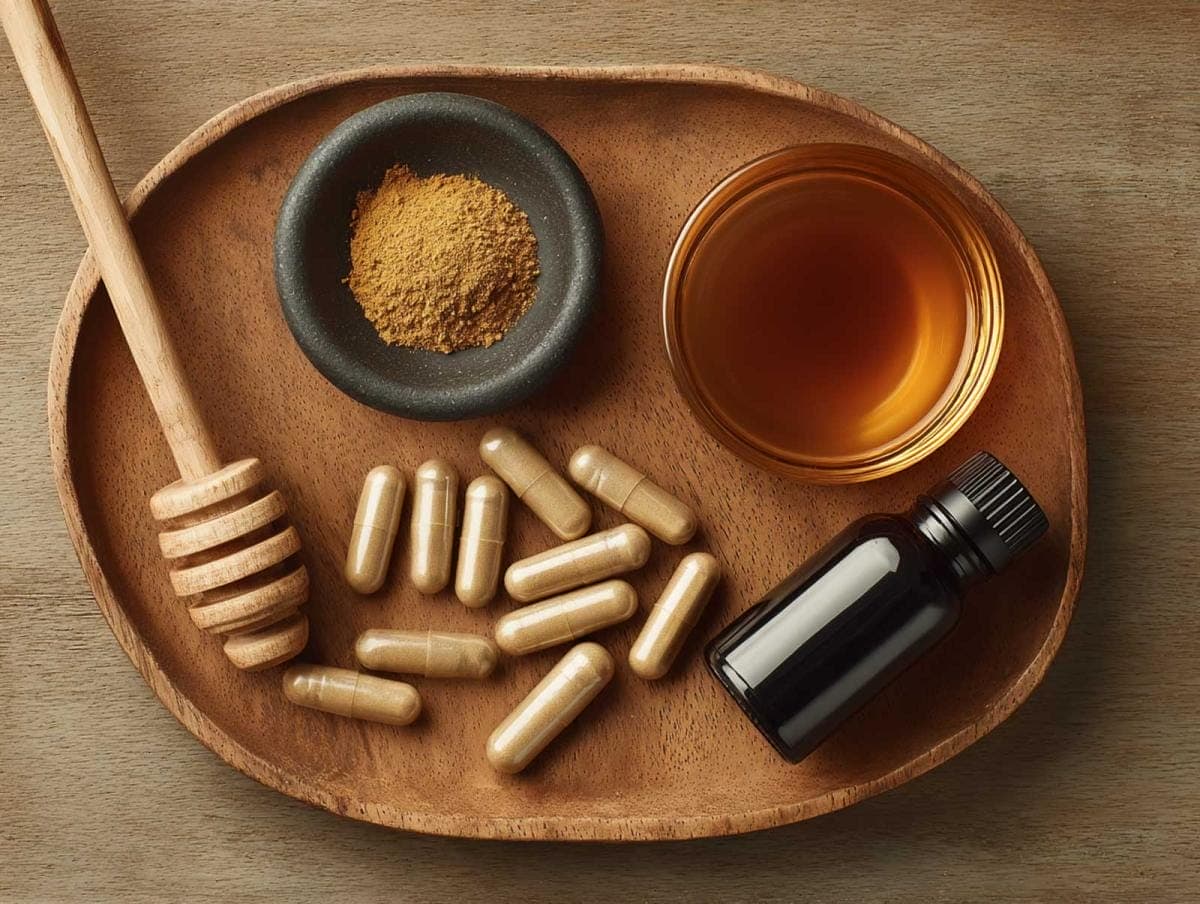If you click on links we provide, we may receive compensation.
Cold sores aren’t just annoying – they’re painful, embarrassing, and always seem to show up at the worst time. Whether it’s a looming presentation, a date, or just a family dinner, that tingling sensation is your unwelcome warning: a blister is on its way.
Most people reach for a tube of over-the-counter cream. But if you’re someone who prefers to keep things natural – fewer chemicals, fewer side effects – there are plant-based and time-tested options that can actually help. Some may shorten the duration. Others just make the whole experience more tolerable. Either way, nature has your back. Let’s break down what works, what doesn’t, and how to handle cold sores without resorting to synthetic drugs.
Why Cold Sores Keep Coming Back
Cold sores are caused by the herpes simplex virus type 1 (HSV-1). Once you have it, it doesn’t go away. It hides in your nerve cells and can wake up when your immune system is weak – after a cold, during a stressful period, or after sun exposure.
So, the key to managing cold sores isn’t just treating the blister. It’s also about boosting your body’s defenses, calming inflammation, and avoiding triggers. That’s why natural remedies can play a big role – many support your body instead of just masking symptoms.
Lysine: The Tried-and-True Supplement
If you’ve ever looked into natural cold sore remedies, lysine probably came up first. And for good reason. Lysine is an essential amino acid. The herpes virus needs a different amino acid – arginine – to replicate. So, when you increase lysine and limit arginine, you make it harder for the virus to multiply. Clinical studies support this. One found that lysine supplements reduced the number and severity of outbreaks in people with frequent cold sores.
For prevention, some people take 1,000 mg of lysine daily. During a flare-up, they may increase that to 2,000-3,000 mg for a few days. Talk to your doctor before trying that dosage long-term. Foods high in lysine include cheese, yogurt, fish, and poultry. Arginine-rich foods – like chocolate, nuts, and seeds – may be worth limiting during an outbreak if you’re prone to frequent sores.
Lemon Balm (Melissa officinalis): The Plant with Proven Power
Lemon balm isn’t just a calming herb. It’s antiviral, especially against HSV-1. A 1999 study published in Phytomedicine found that a lemon balm cream significantly reduced healing time and prevented the spread of infection. What makes lemon balm so effective? Its rosmarinic acid content seems to disrupt the virus’s ability to bind to host cells. That means fewer blisters and faster recovery.
You can apply lemon balm as a cream or ointment at the first sign of tingling. You can also use it as a compress by steeping lemon balm leaves in hot water, letting it cool, and applying the liquid with a clean cloth.
Propolis: Bee Glue That Fights Viruses
Bees use propolis to seal their hives, but humans have used it for centuries as a natural antiseptic. Propolis is packed with polyphenols and flavonoids that fight bacteria, fungi, and yes – viruses. A 2021 review published in Molecules confirmed that propolis has notable antiviral activity against herpes simplex virus.
You can find propolis as a tincture, cream, or ointment. Apply it directly to the cold sore several times a day to potentially reduce healing time and soothe discomfort. Just make sure the product is alcohol-free – alcohol can dry and irritate the skin.
Aloe Vera: Cool Relief Without Sting
Aloe vera is a go-to for sunburn, but it may also help with cold sores. Its soothing gel contains compounds that reduce inflammation and speed up skin healing. Animal studies have shown aloe’s antiviral activity against HSV-1. While more human studies would help, plenty of anecdotal reports suggest it eases the pain and helps the scab stage pass more comfortably.
Use pure aloe vera gel (ideally from the inner leaf or a product without added chemicals) and dab it onto the sore. Reapply as often as needed, especially if the skin feels dry or tight.

Tea Tree Oil: Use with Care
Tea tree oil has strong antiviral and antibacterial properties. But it’s also potent and can irritate sensitive skin. Still, when diluted properly, it may help disinfect the sore and reduce its lifespan. One lab study found that tea tree oil inhibited herpes simplex virus replication in cultured cells.
If you want to try it, mix one drop of tea tree oil with a carrier oil like coconut or almond oil. Apply gently with a cotton swab and avoid getting it in your mouth. If it stings or your skin gets red, stop use.
Licorice Root: More Than Just Candy
Licorice root (Glycyrrhiza glabra) contains glycyrrhizin, a compound shown to stop herpes virus replication in lab studies. It also soothes inflammation and may reduce irritation from the sore.
You can drink licorice root tea for internal support, but a topical paste works best for cold sores. Mix a small amount of powdered licorice root with water or petroleum jelly and apply directly to the sore. Use caution if you have high blood pressure – internal use of licorice can raise it in some people.
Ice and Honey: Simple, But Helpful
Sometimes the simplest remedies are still useful. Pressing an ice cube against the tingling area for 5-10 minutes at the first sign of a cold sore may reduce inflammation and slow the virus. It’s not a cure, but it can help keep the sore smaller.
Honey, especially raw or Manuka honey, also has antibacterial and antiviral effects. A 2004 study found that honey worked as well as acyclovir cream in healing cold sores. Dab a little onto the sore a few times a day – just make sure you’re not allergic to bee products.
Boosting Immunity Naturally
Cold sores tend to strike when your immune system is down. So, prevention is just as important as treatment.
A few immune-friendly practices:
- Get enough sleep. Lack of rest weakens your virus-fighting abilities.
- Eat vitamin-rich foods. Especially those high in Vitamin C, zinc, and B-complex.
- Manage stress. Chronic stress is a known trigger. Try breathing exercises, meditation, or adaptogenic herbs like ashwagandha.
- Stay hydrated. Dehydration can dry out lips and skin, which may increase the chance of cracking and viral entry.
Sun Protection is Non-Negotiable
Sun exposure is one of the most common cold sore triggers. UV rays weaken your skin barrier and suppress the immune response around your lips.
If you’re prone to cold sores, wear a lip balm with SPF 30 or higher – even in winter. Look for formulas with zinc oxide or titanium dioxide for mineral-based protection and avoid lip products with fragrances or flavors that may irritate.

When to See a Doctor
Natural remedies can be powerful, but they’re not always enough.
If your cold sores:
- Last more than 2 weeks
- Keep coming back frequently
- Spread to your eyes or other parts of your face
- Are accompanied by fever, headache, or swollen lymph nodes
…it’s time to check in with a healthcare provider. Antiviral medications may be needed to control more serious or stubborn outbreaks.
Also, if you’re immunocompromised or pregnant, talk to a doctor before using any herbal or supplement-based treatment.
Cold Sore Myths to Ignore
There’s a lot of bad advice floating around online. Here are a few things that don’t help:
- Toothpaste: Some people swear by dabbing toothpaste on cold sores, but most formulas are drying, irritating, and not antiviral.
- Vinegar: Harsh and acidic. It may sting more than it helps.
- Popping the blister: This doesn’t speed healing. It increases your risk of spreading the virus or causing a secondary infection.
Stick to science-backed remedies and your lips will thank you.
FAQs
Can I prevent cold sores naturally?
You can reduce your chances by managing stress, avoiding known triggers like sun exposure or illness, taking lysine, and supporting your immune system with good nutrition and sleep.
Is it safe to use essential oils for cold sores?
Some essential oils (like tea tree and peppermint) have antiviral effects, but they must be diluted and used with care. Test for skin sensitivity before use.
How long do cold sores last?
With or without treatment, most cold sores heal in 7 to 10 days. Natural remedies may reduce healing time slightly and make symptoms more manageable.
Is it okay to put coconut oil on a cold sore?
Yes. Coconut oil is soothing, antimicrobial, and can act as a gentle carrier oil for more potent ingredients like tea tree or licorice root extract.
What’s the best natural remedy to apply at the first tingle?
Lemon balm, propolis, or ice are great first-response options. Apply quickly to try to contain the outbreak before the blister fully forms.
Summary: Nature’s Toolbox Is Full of Options
Cold sores may be stubborn, but that doesn’t mean your only option is a drugstore cream. Nature has given us several effective tools – from lemon balm and lysine to propolis and licorice. When used early and consistently, these remedies can reduce pain, speed healing, and potentially prevent the next outbreak. As always, the most powerful approach is a mix of smart prevention and gentle, effective care.




